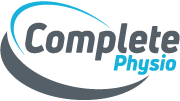Ever wondered what it takes to bounce back better and stronger after orthopaedic surgery?
Take a look into our essential guide on pre and post-surgery rehabilitation at Complete Physio, where we steer you through every step, to ensure you’re not just healed, but thriving. Whether your goal is to get back on the slopes, run a marathon, be able to get back in your garden or walk your dog.
Orthopaedic treatment doesn’t just begin and end with surgery. We know that pre-op care and preparation, as well as effective post op management, leads to lower risk of surgical complications, better surgical outcomes, and faster recovery.
For many, the thought of having surgery is a frightening prospect, full of uncertainty and anxiety. How will I cope after the surgery? What do I need to do to prepare for it, and give myself the best possible outcome? How will I get back to work? How long until I can do X, Y or Z…?
You will likely be informed of what the operation itself involves but are often left with many questions about what you should be doing prior to surgery and what your life will look like afterwards.
Within this blog, we aim to try and put you at ease with advice on the main considerations you need to think about, top tips on how you make your journey as smooth and efficient as possible, and enable yourself the best chance of achieving your best recovery to meet all your goals.
Pre-surgery
At Complete Physio, we want to ensure that you are supported throughout your treatment journey, from start to finish.
If you are due to have surgery, whether you have had any physiotherapy with us before or not, we are here to help. Please send us an email or give us a call and one of our Physiotherapists will be happy to discuss your condition and treatment options.
When it comes to planning and preparing for your surgery, there are a few things you should consider; by making sure you go into it having a plan and time frame of what you can do afterwards you will feel more confident and less anxious about how you will cope and thrive once your procedure is done.
Here are some top pre-surgery tips:
- PREHAB – See a physiotherapist for prehab. Engaging in a tailored prehab programme will ensure you are in the best condition possible before your operation; the stronger you are and the better you’re moving, the easier your post-operative rehab will be. In some cases, surgery is even avoided entirely with adequate physiotherapy input!
“Choosing to do prehab at Complete Physio was the best decision I made. The team prepared me so well that my surgery and recovery went smoother than I ever imagined. I’m now back walking the dog and living my life to the fullest, and I couldn’t have done it without their expert care and encouragement. Thank you, Complete Physio!” – Sarah
- Ask your surgeon/therapists ALL of your questions; we strongly recommend you write a list of questions prior to your final appointment. When listening to all of the surgical details it can be quite overwhelming to take in, and you are very likely to forget to ask the things you want to know.
- Ensure you talk to your surgeon and get a realistic time frame for how long it will take you to return to work, so if required you can get all the necessary certificates/paperwork for your employer. Discuss your surgery with your employer and make sure you plan for being off work for an extended period; hand over your workload or reduce your work commitments prior to your surgery so you are not worrying about it while you’re trying to recover.
- If you have children, make sure you have a robust plan in place regarding childcare and who is going to do school runs, sports clubs etc. You may want to help prepare them for the fact that you might not be able to pick them up or carry them for a while, or help with all the things you normally would. You will also likely need help with shopping, cooking, cleaning, and possibly even daily tasks like washing and dressing etc. Make sure you have made a plan for all these things and that you have good support in place from family, friends and neighbours.
- Prepare your home environment to make everything as easy for you as possible around the house.
For example:
- Lower limb surgery – if you need crutches or a walking aid it is best to avoid trip hazards like rugs to make sure you don’t fall. Try to get rid of any items that narrow/clutter walkways and doorways so you can walk comfortably and confidently.
- Upper limb surgery – if there are items you will need to use regularly, make sure they are easy to reach. Not too high up or too far away to reach, plus make sure you have clothing that is easy to get on/off!
- Spinal – think about the height of your bed and chairs and the suitability/support of the chairs or sofa to make sure you do not have to strain to get in/out.
- If you require any equipment, try to organise this prior to going into hospital. Things like crutches and braces are almost NEVER covered by health insurers and so you will have to cover the cost of these items. Hospitals charge much higher for equipment than if buying independently, so speak to your surgeon/physio and they will guide you on what you will need, ensuring you don’t end up paying unnecessarily high prices for equipment.
- You may also benefit from equipment that can really streamline your recovery, such as specialist icing/compression units or muscular stimulators to help with muscle activation – these can be your golden ticket to a smooth recovery and give you a big head start. You should discuss this with your surgeon or therapist as they can often be hired for a period of time post-op, such as ‘Game Ready’ or ‘Physiolab’ which are ice/heat therapy machines.
- Be aware of what appointments you will need post-surgery and get them booked in advance; a wound review with a GP or nurse is nearly always required. You will also need to see your physiotherapist within a couple of weeks post-op too. If you can organise these appointments, as well as travel arrangements, prior to going into hospital it will reduce the stress when you are recovering.
Post-surgery and return to work
Once your surgery is done, now it’s time to focus on yourself and your recovery and rehabilitation – this is when the hard work really starts! Hopefully you have ensured all your post-op appointments are booked and you have travel sorted to attend these. Your home should be set up ready to make life as easy as possible, and you have rallied a team to help you with childcare and shopping etc.
During your hospital stay a physiotherapist will show you a basic set of rehab exercises to do daily, these should be continued from day 1 post-op. You should also have been prescribed some pain medication to take home with you.
Here are our top tips to enhance recovery post-op:
- In the first 1-2 weeks make sure you take your pain medication exactly as prescribed. – set a clock to remind you! Don’t wait until the pain has built up – the strength of the drugs that you take home is generally lower than what you were given whilst in the hospital, and therefore it is most effective when you have a cumulative amount in your system. If you reduce or stop taking your painkillers and the pain returns, it may take a couple of days to get back on top of it. This will stop you from being able to perform your rehab properly, disrupt your sleep and slow your recovery down.
- Regularly ice and elevate – aim to ice at least 3-4 times a day for 20 mins at a time, and when not exercising try to elevate the arm or leg to reduce the swelling. If you have a specialist ice/compression machine then use this as you have been advised by your physio/surgeon. We recommend using Physio Lab or Game Ready; they are incredibly good at helping reduce swelling, particularly after knee or ankle surgery. They can be pre booked online to be delivered in time for your hospital discharge.
- DO YOUR REHAB – Following surgery you will require a specific, individualised rehabilitation programme, delivered under expert physio guidance, to address the associated muscle weakness, changes in movement patterns and reduced exercise tolerance that are commonly present in post-op patients.
At complete Physio we use an app called Physitrack which allows you to have easy access to your rehab programme remotely from your phone or tablet. Your physio can upload your exercises and video demonstrations onto Physitrack to help you follow your rehab programme and keep you on track with your exercises. Or if you prefer your physio can provide handouts or PDF documents so that you feel confident about the exercises you have been prescribed.
Research suggests that a physiotherapy-led (supervised) exercise programme is essential to ensure patients achieve their rehabilitation goals and regain full function.
The surgery is only as good as your rehab – do not forget this! At Complete Physio we aim to get you more active and stronger than you were before surgery, reducing the risk of any further injury.
- Have an open and honest conversation with your employer to make sure you both have the same expectations for when you return to work. You will likely need to have an occupational health review to ensure your working environment is safe and appropriate for you to make the transition as easy as possible. They may suggest a phased return to work or if you have a manual job, you may need to be on light duties or alter your role initially.
We hope this gives you some insight into how best to prepare and recover following surgery.
We have supported 1000’s of patients on their pre and post op recovery journey; we would love to help you too!
We have an expert team of rehab specialists who are always here to help, so if you have any further questions, or if you would like to book a pre or postoperative rehabilitation appointment please don’t hesitate to contact us.
Home Visit Physiotherapy Treatment
Complete Physio offers a unique home visit physio rehabilitation service in London. If you’ve had a major injury that requires surgery, especially lower limb surgery such as a total knee or total hip replacement, ACL or Achilles repair, then you may benefit from having a few home based physiotherapy sessions.
Our team of domiciliary physios are the same physios who you will see in clinic, therefore you will have an exceptional and seamless transition when you are ready to start coming into one of our London facilities.
We offer both pre and post op orthopaedic home physio care. We work closely with your surgeon to ensure you receive a fully holistic and patient-centred approach to your recovery.
To access this service please complete an online form.
Don’t let pain hold you back, book now!







